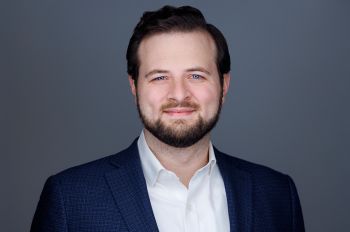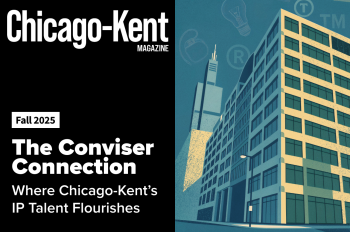New book by Professor William Birdthistle critiques how Americans save for retirement
Author proposes low-cost alternative to traditional 401(k) and IRA accounts
A single generation ago, many Americans enjoyed the prospects of paying for their golden years with a steady stream of income from their pension plans. Today, only 3 percent of U.S. private-sector workers are covered solely by pensions, while one-third of American households have no retirement savings at all. With the demise of pensions and the rise of 401(k) plans, Americans today will have to support themselves on the returns-however high or low-of their personal investment accounts.
In his new book, Empire of the Fund: The Way We Save Now (Oxford University Press 2016), Professor William Birdthistle exposes and critiques what he calls the richest and riskiest experiment in our nation's financial history. He illustrates the flaws in the hypothesis of that experiment: that millions of ordinary, untrained, and busy citizens can successfully manage trillions of dollars in a financial system governed by powerful financial institutions. Professor Birdthistle explores the obstacles that individual investors face when using mutual funds to save and offers three solutions for how to safeguard their individual financial destinies as well as the nation's fiscal strength.
To protect their financial security, Professor Birdthistle argues that Americans will need "a greater understanding of mutual funds, more transparency from the financial firms that manage them, and stronger enforcement by prosecutors of the regulations that govern funds." He proposes opening the federal Thrift Savings Plan to all Americans so they can benefit from a low-cost, well-run saving plan.
A member of the Chicago-Kent College of Law faculty since 2006, Professor Birdthistle is an expert on investment funds and corporate law, focusing specifically on governmental investigations into allegations of malfeasance in the mutual fund industry. He teaches business organizations, securities regulation, corporate finance, investment funds, and international business transactions.
Previously, Professor Birdthistle served as a law clerk to the Honorable Diarmuid F. O'Scannlain of the U.S. Court of Appeals for the Ninth Circuit and practiced law at Ropes & Gray LLP. He is a graduate of Duke University and Harvard Law School, where he served as managing editor of the Harvard Law Review.
Founded in 1888, Chicago-Kent College of Law is the law school of Illinois Institute of Technology, also known as Illinois Tech, a private, technology-focused, research university offering undergraduate and graduate degrees in engineering, science, architecture, business, design, human sciences, applied technology, and law.



